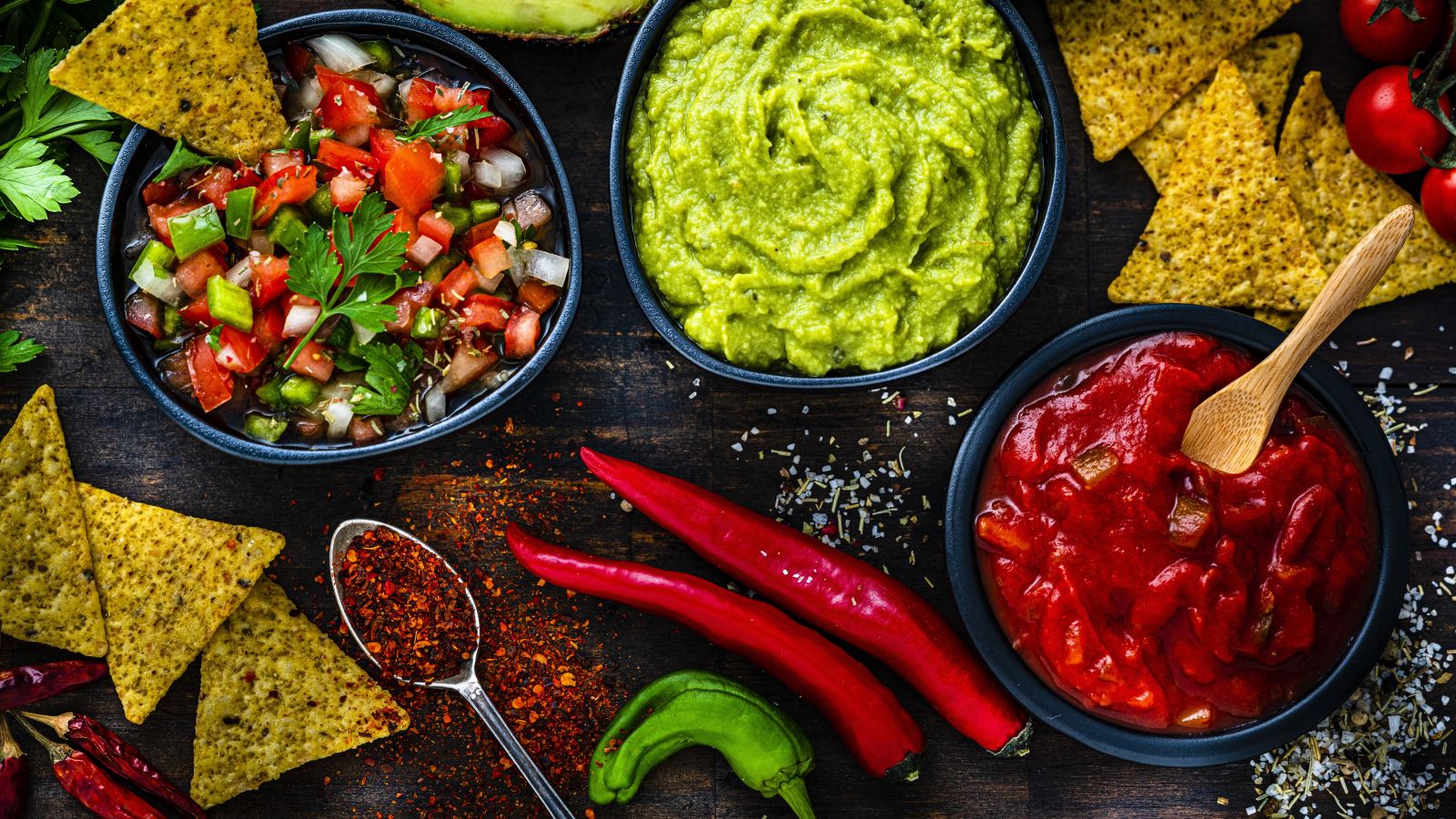Whether you’re in it for the cultural cuisine or the margaritas, a night out at a Mexican restaurant is always a crowd-pleaser.
But when you’re trying to eat healthy, navigating the menu can feel like a challenge.
To help you out, we asked an expert for six simple tips to keep you on track.
1. Watch the chips.
The chips and salsa may be your favorite part of the evening, but the calories in fried tortilla chips can stack up quickly.
“These are risky, especially because of the tendency to graze on them throughout your meal. Servers often refill the chip baskets without being asked, which can make it difficult to keep track of how much you’ve eaten,” says Samantha Oldman, MS, a bariatric surgery dietitian with Hartford HealthCare’s Digestive Health Institute.
The other challenge with chips comes from your choice of dips.
“Salsa is typically a safe bet – it’s low in both calories and fat,” she notes. “And while avocado is considered a healthy fat, the calories in guacamole can quickly skyrocket if you have a large portion. Queso, sadly, tends to be the worst choice, as it’s high in calories, saturated fat and sodium.”
If you’re going to indulge in chips, moderation is key.
“The trick here is portion size – if you can have just a handful of chips with a small amount of dip, it’s not a bad choice. At many Mexican restaurants, you can choose ceviche instead of the other options, which is high in protein and relatively low in fat and sodium.”
> Related: How Much Fat and Carbs Should I Actually Be Eating?
2. Check your salad toppings twice.
Salads are a go-to choice for the health conscious, but at restaurants, not all salads are as healthy as they look.
“Salads often come with bells and whistles that reduce their nutritional value,” says Oldman. “At Mexican restaurants, these include tortilla strips, cheese or other high-calorie items like sour cream or guacamole.”
Taco salads can be one of the worst offenders, she warns.
“The portions on a taco salad are often so large that they’re higher in calories and fat than if you had just ordered a few street tacos,” Oldman says.
Instead, she suggests customizing a salad to focus on the vegetables, rather than any high-fat toppings. Oldman also recommends getting your dressing on the side so you can control the amount, and ideally selecting an oil-based dressing instead of a creamy dressing.
> Related: 4 Ways to Eat Healthy at Italian Restaurants
3. Choose your side carefully.
Like always, a side of grilled vegetables is your best bet. But you still have plenty of options to choose from.
“The refried beans are just so good!” says Oldman. “And yes, that’s because of the extra butter and salt that’s added to them. But like everything, they’re okay to enjoy in small quantities. Luckily, they also have plenty of protein and fiber, so there is some nutritional value there.”
But if you’re watching your fat intake, beans that are not refried (like black or pinto beans) might make a better option. Mexican rice is another similar choice, but has less protein and fiber than whole beans.
4. Don’t sleep on the fajitas.
Finally some good news – if you’re worried about your diet, fajitas make a healthy choice.
“Most of the entrees at Mexican restaurants are fairly similar in terms of nutritional value, but fajitas tend to be the best option. Because you assemble them yourself, you can monitor your portions as well as your toppings. And if you’re watching your carbs, you can even skip the tortilla and eat just the meat and vegetables.”
Not a fajita fan? Oldman also recommends tacos, especially if you can order them individually and control your portion.
5. Avoid the deep fried food.
Bad news for chimichanga lovers – deep fried food tends to be higher in calories and trans fats.
“Unfortunately, this includes empanadas, chimichangas or any fried proteins,” says Oldman.
Instead, Oldman recommends a lean protein, grilled with mixed vegetables and rice or beans.
“Look for chicken, shredded pork, shrimp, salmon or even a lean steak. Just beware of the fattier cuts of meat, like pork belly, chorizo or ribeye steak,” she adds. “And if you’re getting tacos, look for corn tortillas, which are generally lower in calories, carbohydrates and sodium.”
6. (Try to) stay away from the burritos.
More bad news. Typically the highest-calorie item on the menu, burritos are difficult to sneak into a balanced diet.
Coming with a large tortilla and packed with beans and rice, burritos are high in both carbs and calories.
“But take this with a grain of salt,” says Oldman. “It’s still important to enjoy your meal on a night out, and it’s okay to treat yourself. If burritos are your favorite food, don’t be afraid to order them once in awhile. The best advice is just to eat slowly and stop eating when you’re full – it never hurts to have leftovers!”


